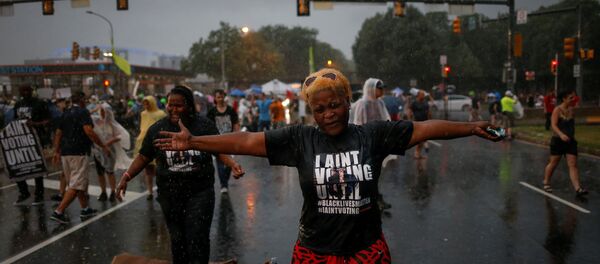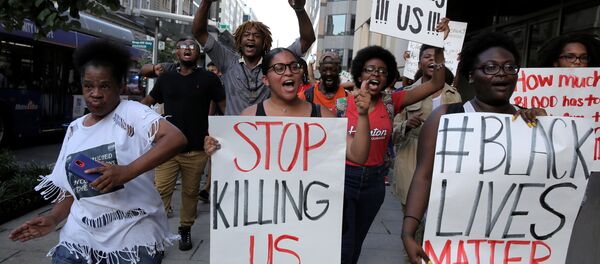Titled "A Vision for Black Lives: Policy Demands for Black Power, Freedom and Justice," the agenda was released Monday by the Movement for Black Lives, and is addressed to both Democrats and Republicans, in lieu of supporting any presidential candidates.
Michaela Brown, a spokesperson for one of the group's partner organizations, Baltimore Bloc, said in a statement, "We seek radical transformation, not reactionary reform…As the 2016 election continues, this platform provides us with a way to intervene with an agenda that resists state and corporate power, an opportunity to implement policies that truly value the safety and humanity of Black lives, and an overall means to hold elected leaders accountable."
The platform contains six demands and 40 recommendations on how they can be addressed. For example, in their call for criminal justice reform, the activists say that the kind of militarized police tactics seen in Ferguson and the immediate release and the ex post facto decriminalization of people with drug-related convictions, youth offenses and sex-work related offenses.
The organizers are also calling for legislation that would create a commission dedicated to examining reparations for the descendants of enslaved Africans.
The Black Lives Matter movement first took root in 2012 after the the shooting death of 17-year-old Trayvon Martin by George Zimmerman in Florida. Activist Alicia Garza wrote a "love letter to black people" that ended with the phrase, "…we matter. Our lives matter, black lives matter." Garza’s friend and fellow organizer Patrisse Cullors made a hashtag out of #BlackLivesMatter and the two of them, along with Opal Tometi, decided to create an organization with the same name once protests erupted after Brown’s death two years later.
Coordinated largely through social media and local efforts, the movement has elicited responses from everyone from Lebron James to Barack Obama to Nick Cannon. The movement has also forced policing and criminal justices issues to the forefront of the presidential campaign, even though Black Lives Matter activists were noticeably absent from both the Republican and Democratic National Conventions.



